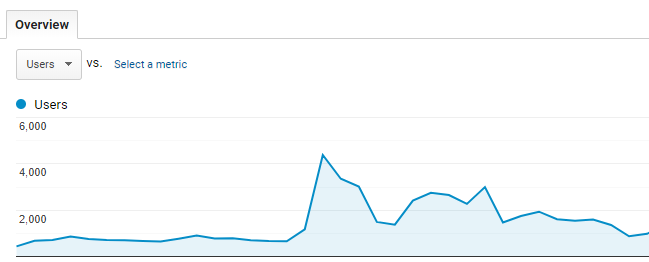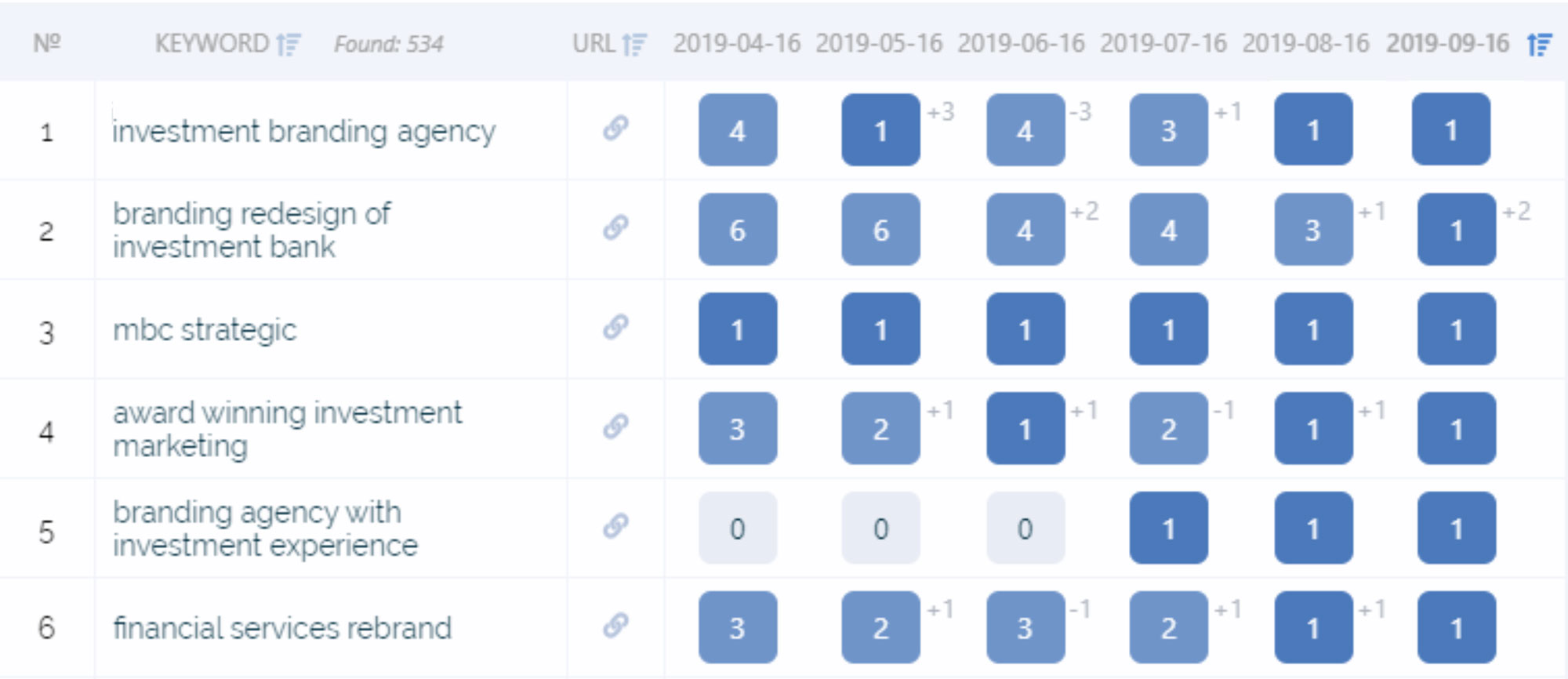Increasing Google Search Results for Financial Institutions and Investment Firms

Have you noticed a decline in web traffic or that your Google rankings have stagnated a bit? For financial institutions and investment firms, the most cost-effective way to climb those vaunted Google rankings and increase your website traffic, is to make sure your organic content incorporates unique key words to engage your audience and make those Google algorithms happy. But how long does it take? A common question we get from clients, like with most things Google, the honest answer is, it depends.

Especially in the competitive world of investment and finance, creating an effective SEO strategy and climbing the ranks is not like turning on a light switch or publishing a keyword stuffed thought capital article. Even though you may be generating keyword rich content, there are variables that come into play such as your target keyword length, how competitive those words are, and your competition’s skill. All of these factors will play a role in how quickly one can move the needle. Let’s take a look at how we can begin to help your firm.
Making Google Happy. What does that mean?
When it comes to satisfying Google there are four key strategies to organically grow rankings in a timely manner and the ethical way.
Create an educational and engaging user experience
In today’s world, over half of searches are on mobile. What does that mean for SEO? In order to appear in Google’s results your page must be mobile friendly, i.e. “responsive” and stuffing keywords where they don’t belong naturally will only hurt your rankings.
A simple alternative to keyword stuffing is to comb through your website and add bold-relevant headers, italicize key terms and add relevant images or videos. While these actions won’t immediately affect your SEO ranking, it will allow users to find what they are looking for and engage with your site instead of bouncing quickly.
Google monitors engagement closely. Meaning, your page rankings increase the longer people stay on a page and interact with it by clicking onto other pages. This sends signals to Google that the user found exactly what they were looking for—this will help your ranking significantly.
Use Unique Page Titles and Meta Descriptions
Page titles are the first thing Google sees when they crawl your site. Making sure your titles are simple, clear, relevant and accurately describe the content below is critical for SEO performance and for click-ability in search results (SERP) pages.
Be sure to incorporate simple meta descriptions. A lot of firms make the mistake of failing to create meta-tag descriptions when uploading organic content or a new page to their site. The meta description is what appears in the Google search result and without it, your page update or article will fail to be crawled at all.
Here’s an example of an effective meta description for an asset manager focused on a particular style or asset class.

Do Not Stuff Keywords
Good SEO practice for Google is to keep the diction colloquial, like a real-life conversation or explanation. Stuffing keyword after keyword will only hurt SEO performance as Google has a detection policy that will red flag your page as an attempt to manipulate results. If you do have a unique approach to asset management or focus on an obscure asset class, take advantage of longer tail keywords to own those terms. Get inside the head of your target audience—what are they doing, thinking and feeling—and what would they type into Google. If you can solve for their problem in your page titles and within the copy, your page rank and engagement should follow.
Use relevant keywords that would be spoken in normal conversation, and let Google understand your page is educational and supplies internet searchers exactly what they are looking for. To do this start with a clear and concise headline that explains the information to follow. Google loves a good headline.
Utilize the Your Analytics and Tools
Everyone should be familiar with Google Analytics, but there are many more analytic tools that can help you better understand your google rankings. For financial institutions and investment clients, keyword focus often changes on a quarterly basis depending on what topics of discussion are relevant for that time of year.
Platform analytics tools such as search results tracking software and Google Search Console can give you great insight into keyword performance and allow you to monitor changes, strategy and google rankings all within their platforms.

With these tools, you can track rank changes over time or compare date-to-date performance. This is important because it can show how current blogs and site pages are being crawled by Google, which can help your website improve its rankings. Google Search Console is another tool we use to provide vital information to our financial institutional clients when it comes to what is actually being searched and the resulting impressions and clicks. From here, we can analyze which keywords need help organically in the form of blogs or other materials such as whitepapers.
The ability to understand, interpret and report the metrics is where the skillset comes in. Anyone can view the numbers, but it takes a tested strategy to make changes and see positive growth. At MBC Strategic, we pair educated analysis of content metrics with a focused and targeted brand strategy to help financial and investment firms get to the next level and grow their brands.
MBC has been helping financial institutions and investment firms grow for over twenty years. Whether a new brand launch, a website redesign or an investment strategy-focused SEO marketing project, we offer full-service marketing and branding services. Get in touch with the team at MBC Strategic today.
Published:
Tags: financial brand marketing, financial services industry marketing, investment industry marketing, Financial institutions SEO, finance seo strategy, increasing seo in finance, financial marketing millennial, Financial and Investment search results, Google Search Results, Award winning marketing agency, financial firm content writing, financial firm pr, award winning advertising agency, award winning financial service marketing, branding agency with investment experience, branding for investment industry, investment brand strategy, investment marketing and branding